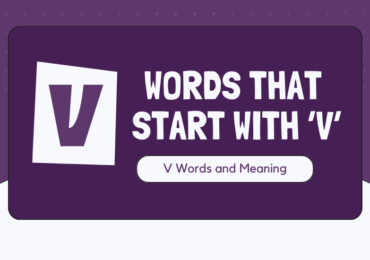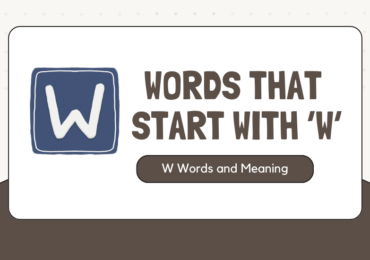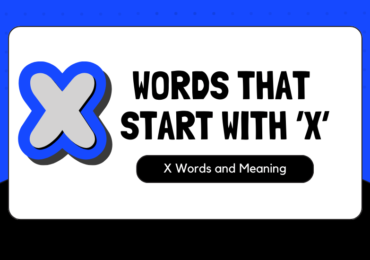Direct Speech : When we want to describe what someone said, one option is to use direct speech. We use direct speech when we simply repeat what someone says, putting the phrase between speech marks.
Indirect Speech : When we want to report what someone said without speech marks and without necessarily using exactly the same words, we can use indirect speech (also called reported speech).
మనం నిత్యమూ జరిపే సంభాషణలు రెండు రకాలుగా ఉంటాయి. అందులో మొదటిది ప్రత్యేక్ష సంభాషణలు, రెండవది పరోక్ష సంభాషణలు. ప్రత్యేక్ష సంభాషణలు అంటే స్పీకర్ చెప్పే మాటలను యధాతదంగా మూడవ వ్యక్తికి తర్జమా చేయడం.
పరోక్ష సంభాషణ అంటే స్పీకర్ చెప్పే మాటలని రిపోర్టింగ్ పద్దతిలో మన మాటల్లో నివేదించడం. ప్రత్యేక్ష సంభాషణలను ఇంగ్లీషులో Direct Speech అంటారు. పరోక్ష సంభాషణలను Indirect Speech అంటారు.
- By repeating the words spoken (direct speech) - మాట్లాడే పదాలను పునరావృతం చేయడం (ప్రత్యక్ష ప్రసంగం)
- By reporting the words spoken (indirect or reported speech) - మాట్లాడే పదాలను నివేదించడం (పరోక్ష లేదా నివేదించబడిన ప్రసంగం).
Example
| Direct Speech | The Chief Minister said, "Student scholarships will be released in ten days" (ముఖ్యమంత్రి అన్నారు "విద్యార్థుల స్కాలర్షిప్లు పది రోజుల్లో విడుదల చేయబడతాయి") |
| Indirect Speech | The Chief Minister said that student scholarships would be released in ten days (పది రోజుల్లో విద్యార్థుల స్కాలర్షిప్లు విడుదల చేస్తామని ముఖ్యమంత్రి తెలిపారు) |
పై ఉదాహరణ గమనించినట్లు అయితే, మొదటి వాక్యం (డైరెక్ట్ స్పీచ్) ఒక విలేకరి, టీవీ రిపోర్టరుతో చెప్పిన వాక్యం అనుకుంటే, రెండవ వాక్యం రిపోర్టర్, ప్రజలకు తెలియజేసిన వాక్యం అవుతుంది. మొదటి వాక్యంలో ముఖ్యమంత్రి నేరుగా చెప్పిన స్టేట్మెంట్ ఉంది.
రెండవ వాక్యంలో ముఖ్యమంత్రి చెప్పిన వార్తను ప్రజలకు నివేదించినట్లు ఉంది. అనగా పై వాక్యంలో యెదావిధంగా చెప్పిన ముఖ్యమంత్రి స్టేట్మెంట్ - Direct Speech అవుతుంది. ముఖ్యమంత్రి చెప్పిన స్టేట్మెంట్ ను నివేదించినట్లు చెప్పిన రెండవ వాక్యం Indirect Speech అవుతుంది.
డైరెక్ట్ స్పీచ్ మాటల్లో రెండు వాక్యాలు (clauses) ఉంటాయి. మొదటి వాక్యాన్ని "రిపోర్ట్ వెర్బ్" అంటారు. రెండవ వాక్యాన్ని "రిపోర్ట్ స్పీచ్" అంటారు. ఈ వాక్యాలు కామా (,) లేదా హైపెన్ (-) తో వేరుచేయబడి ఉంటాయి.
ఇందులో మొదటిది స్పీకర్ (మాట్లాడే వారు) కి చెందినదై ఉంటుంది, రెండవది స్పీకర్ చెప్పిన స్టేట్మెంట్ (Statement) అయ్యి ఉంటుంది. ఈ రెండవ వాక్యం ఎప్పుడూ కొటేషన్ సింబల్ ( "--" ) మధ్య ఉంటుంది. "
Indirect speech లో ఒకే వాక్యం ఉంటుంది. Direct Speech లో ఉండే రెండు వాక్యాలూ, "కామా" తొలగించబడి, "That" అనే కంజెక్షన్ ద్వారా కలపబడతాయి. అదే విధంగా Direct speech లో ఉండే Pronoun, Tense లను వాటికీ అనుగుణంగా Indirect speech లో మార్చాల్సి ఉంటుంది.
Direct Speech to Indirect Speech
మార్చేటప్పుడు పాటించాల్సిన నియమాలు
- Remove comma and inverted commas.
- Put "that" between the reporting and reported speeches.
- Change the 1st letter of reported speech into small letter except for "I".
- Change the pronoun of the direct speech..according to their relations with the reporter and his hearer.
- Change the tense of the direct speech appropriately.
- Change the words expressing nearness in time or places of the direct speech into its appropriate words..
Direct Speech to Indirect Speech
మార్చేటప్పుడు Pronoun రూపాలలో జరిగే మార్పులు
| Direct speech | Indirect speech |
|---|---|
| I | He / She |
| You | He / She / They |
| We | They |
| He | He |
| She | She |
| It | It |
| Us | Them |
| Our | Thier |
| His | His |
| Her | Her |
| Its | Its |
- Direct speech లోని రెండవ వాక్యంలో, ఫస్ట్ పర్సన్ ప్రొనౌన్స్ (We, I, Me, Mine, My, Us & Our) ఉంటూ, Indirect Speech లో ఉండే సబ్జెక్ట్ Pronoun 3rd person లో ఉంటె .. రిపోర్ట్ స్పీచ్ లో ఉండే ప్రొనౌన్ He, She, It, They, Thier, Her, His వస్తాయి.
- Direct speech లోని రెండవ వాక్యంలో, ఫస్ట్ పర్సన్ ప్రొనౌన్స్ (We, I, Me, Mine, My, Us & Our) ఉంటూ, Indirect Speech లో ఉండే సబ్జెక్ట్ Pronoun 1st person లో ఉంటె .. రిపోర్ట్ స్పీచ్ లో ఉండే ప్రొనౌన్ లో ఎటువంటి మార్పు ఉండదు. I లేదా We మాత్రమే వస్తాయి.
- Direct speech లోని రెండవ వాక్యంలో, 3rd పర్సన్ ప్రొనౌన్స్ (He, She, It, They, His, Her, Him, Them ) ఉంటె .. రిపోర్ట్ స్పీచ్ లో ఉండే ప్రొనౌన్ లో ఎటువంటి మార్పు ఉండదు.
- Direct speech లోని రెండవ వాక్యంలో, 3rd పర్సన్ ప్రొనౌన్స్ (He, She, It, They, His, Her, Him, Them ) ఉంటె .. రిపోర్ట్ స్పీచ్ లో ఉండే ప్రొనౌన్ లో ఎటువంటి మార్పు ఉండదు.
- Direct speech లోని రెండవ వాక్యంలో, 2nd పర్సన్ ప్రొనౌన్స్ (You, Yours ) ఉంటె, Indirect Speech యొక్క రిపోర్టడ్ వెర్బ్ యొక్క ఆబ్జెక్ట్ బట్టి రిపోర్టడ్ స్పీచ్ ప్రొనౌన్ మారుతుంది.
Examples
| Direct speech Indirect speech |
He said, ‘I am busy.’ He said that he was busy |
| Direct speech Indirect speech |
She said, ‘I am unwell.’ She said that she was unwell. |
| Direct speech Indirect speech |
I said, ‘I will be late.’ I said that I would be late. |
| Direct speech Indirect speech |
He said to me, ‘You have to come with me.’ He told me that I had to go with him. |
| Direct speech Indirect speech |
He said, ‘She is a good girl.’ He said that she was a good girl. |
| Direct speech Indirect speech |
She said to him, ‘You can go.’ She told him that he could go. |
| Direct speech Indirect speech |
She said, ‘They have invited us.’ She said that they had invited them. |
| Direct speech Indirect speech |
We said, ‘We need to buy some clothes.’ We said that we needed to buy some clothes.’ |
Direct Speech to Indirect Speech
మార్చేటప్పుడు మోడల్ వెర్బ్ రూపాలలో జరిగే మార్పులు
| Direct speech | Indirect speech |
|---|---|
| Can | Could |
| May | Might |
| Must | Would have to / Had to |
| Should | Should |
| Would | Would |
| Might | Might |
| Could | Could |
| Ought to | Ought to |
Examples
| Direct speech Indirect speech |
He said, “I can cook food.” He said that he could cook food. |
| Direct speech Indirect speech |
They said, “We may go to Canada. They said that they might go to Canada. |
| Direct speech Indirect speech |
She said, “I must finish the work on time.” She said that she had to finish the work on time. |
| Direct speech Indirect speech |
Renuka said, “I ought to avoid junk food.” Renuka said that she ought to avoid junk food. |
Direct Speech to Indirect Speech
మార్చేటప్పుడు Place & Time రూపాలలో జరిగే మార్పులు
| Direct speech | Indirect speech |
|---|---|
| Now | Then |
| Here | There |
| Today | That day |
| Tomorrow | The next day |
| Last week | The previous week |
| This | That |
| To night | That night |
| Ago | Before |
| Thus | So |
| Come | Go |
| Hither | Thither |
| Hence | Thence |
| Next | Following |
Examples
| Direct speech Indirect speech |
She said, "I saw him today". She said that she had seen him that day. |
| Direct speech Indirect speech |
He said, "I'll see you tomorrow". He said that he would see me the next day. |
| Direct speech Indirect speech |
"I saw her a week ago," he said. He said he had seen her a week before. |
| Direct speech Indirect speech |
He said, "I live here". He told me he lived there. |
Direct Speech to Indirect Speech
Interrogative వాక్యాలలో జరిగే మార్పులు
- Interrogative వాక్యాలను డైరెక్ట్ స్పీచ్ నుండి Indirect Speech కి మార్చేటప్పుడు "That" కంజెక్షన్ ఉపయోగించాల్సిన అవసరం లేదు.
- nterrogative వాక్యాలలో "That" బదులు "If లేదా Whether" ఉపయోగించాలి.
- Interrogative వాక్యాల యొక్క Direct Speech లో ఉండే Interrogative form, Indirect Speech లో Assertive (Positive) form లోకి మారుతుంది.
- Direct Speech లో ఉండే క్వశ్చన్ మార్క్ (?) ను Indirect speech లో తొలగించాలి.
- Direct Speech లో ఉండే She Said, He Said (Say, Tell) క్రియా రూపాలూ, Indirect speech లో He Asked, He enquired (Ask & Enquire) రూపాల్లోకి మారుతాయి.
Examples
| Direct speech Indirect speech |
Raja said to Mohan, “Are you going home today?” Raja asked Mohan if he was going home that day. |
| Direct speech Indirect speech |
My friend said to me, “Will you not help me?” My friend asked me if I would not help him. |
| Direct speech Indirect speech |
Shyam said to Dalip, “Did you eat mangoes?” Shyam asked Dalip if he had eaten mangoes. |
| Direct speech Indirect speech |
Ram said to Raju, “Do you really want to leave this city?” Ram asked Raju if he really wanted to leave that city. |
Direct Speech to Indirect Speech
మార్చేటప్పుడు Tenses మరియు Verb లలో జరిగే మార్పులు
1. Direct Speech వాక్యం Simple Present Tense ఉంటె, Indirect Speech లో అది Simple Past Tense లోకి మారుతుంది .
| Direct Speech | She said, "I always drink coffee" |
|---|---|
| Indirect Speech | She said that she always drank coffee. |
2. Direct Speech వాక్యం Present Continuous Tense ఉంటె, Indirect Speech లో అది Past Continuous Tense లోకి మారుతుంది.
| Direct Speech | He explained, "I am reading a book". |
|---|---|
| Indirect Speech | He explained that he was reading a book. |
3. Direct Speech వాక్యం Present Perfect Tense ఉంటె, Indirect Speech లో అది Past Perfect Tense లోకి మారుతుంది .
| Direct Speech | She said, "He has finished his work" |
|---|---|
| Indirect Speech | She said that he had finished his work. |
4. Direct Speech వాక్యం Present Perfect Continuous Tense ఉంటె, Indirect Speech లో అది Past Perfect Continuous Tense లోకి మారుతుంది .
| Direct Speech | He told me, "I have been to Spain". |
|---|---|
| Indirect Speech | He told me that he had been to Spain. |
5. Direct Speech వాక్యం Simple Past Tense ఉంటె, Indirect Speech లో అది Past Perfect Tense లోకి మారుతుంది .
| Direct Speech | He said, "Ramesh arrived on Saturday". |
|---|---|
| Indirect Speech | He said that Ramesh had arrived on Saturday. |
6. Direct Speech వాక్యం Past Perfect Tense ఉంటె, Indirect Speech లో అది Past Perfect Tense లోకి మారుతుంది .
| Direct Speech | He explained, "I had just turned out the light". |
|---|---|
| Indirect Speech | He explained that he had just turned out the light. |
7. Direct Speech వాక్యం Past Continuous Tense ఉంటె, Indirect Speech లో అది Past perfect Continuous Tense లోకి మారుతుంది .
| Direct Speech | "We were living in Paris", they told me. |
|---|---|
| Indirect Speech | They told me that they had been living in Paris. |
8. Direct Speech వాక్యం Future Tense ఉంటె, Indirect Speech లో అది Present Conditional (be form) Tense లోకి మారుతుంది.
| Direct Speech | "I will be in Geneva on Monday", he said |
|---|---|
| Indirect Speech | He said that he would be in Geneva on Monday. |
9. Direct Speech వాక్యం Future Continuous Tense ఉంటె, Indirect Speech లో అది Conditional Continuous Tense లోకి మారుతుంది.
| Direct Speech | She said, "I'll be using the car next Friday." |
|---|---|
| Indirect Speech | She said that she would be using the car next Friday. |









